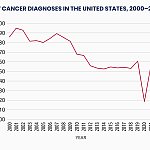
Bailey Fields has experienced weight management issues her entire life.
The concerns have become more acute in recent years after the 27-year-old newly married resident of Hutchison, MN, was diagnosed with polycystic ovarian syndrome (PCOS), a condition that, among other things, can lead to weight gain and potentially type 2 diabetes (T2D).
Similarly, Todd Kennedy has had difficulty with his weight for the past two decades.
The 45-year-old married father of two daughters who lives in Lenoir City, TN, underwent gastric bypass surgery in 2015, a procedure that produced limited results.
However, Kennedy and Fields told Healthline they each found an effective and affordable solution for weight loss last summer.
Fields was prescribed a compounded weight loss drug containing the active ingredient semaglutide that she could purchase for $199 a month from the website Hims & Hers. Fields said she’s since lost 35 pounds since starting the medication.
Kennedy was also prescribed a compounded semaglutide medication available on Hims & Hers for $165 per month. He’s lost 30 pounds since he started taking the drug.
“It worked by suppressing my appetite,” Kennedy said. “I wasn’t as hungry.”
“Nothing else has been as effective for me in the past,” Fields added.
Fields and Kennedy may soon be among the consumers who could lose access to these less expensive weight loss medications.
That’s because of orders from the Food and Drug Administration (FDA) that prohibit the sale of these compounded drugs.
A ban on compounded versions of weight loss drugs that contain the active ingredient tirzepatide took effect on March 19.
A similar prohibition on compounded semaglutide medications is scheduled to go into effect on April 22.
The bans follow the FDA’s
The FDA announced the updated guidance after a federal judge ruled against the Outsourcing Facilities Association, which had filed a lawsuit on behalf of
A similar lawsuit is being considered on behalf of pharmacies that produce the less expensive versions of semaglutide drugs.
The FDA
Telehealth providers such as Eden, Mochi, Ro, and Hims & Hers have been allowed to sell alternative versions of drugs since December 2022 due to a shortage of weight loss drugs caused by increased demand for the products.
However, in December 2024, FDA officials announced that the medication shortage had ended and began prohibiting the sale of compounded weight loss drugs.
“The reason there is so much demand is because, at this time, these drugs are the most effective medications for weight loss,” Mir Ali, MD, a general surgeon, bariatric surgeon, and medical director of MemorialCare Surgical Weight Loss Center at Orange Coast Medical Center in California, told Healthline.
Novo Nordisk and El Lilly have taken steps to lower the price of their popular weight loss medications.
In February, Eli Lilly announced it would sell its 7.5- and 10-milligram vials of Zepbound for $499 per month when consumers fill out their initial prescription and for any refills ordered within 45 days of the previous prescription. Otherwise, the monthly price will be $599 for the smaller vials and $699 for the larger vials.
Consumers buying the discounted medications must use LillyDirect, the company’s cash payment website, and be prescribed Zepbound for either obesity or obstructive sleep apnea.
This past week, Novo Nordisk announced that eligible cash-paying customers can purchase Wegovy at local pharmacies for $499 monthly.
These discounts, however, might not be enough for some consumers, including Fields and Kennedy.
Both told Healthline their health insurance companies won’t cover the drugs, and they’re not sure they can afford to purchase the brand-name medications.
They expressed concern about weight regain without the drugs even if they continue their current diet and exercise routines.
“I’m concerned I’ll start to slip back,” said Kennedy.
“I don’t know what will happen if I stop taking it,” Bailey said. “The medication allows my body to use the tools I give it.”
Bailey noted that she has tried every diet and exercise plan. None of them have been effective on their own.
“That’s not how my body works,” she explained.
Bailey and Kennedy say the FDA should continue to give consumers a wide range of choices on weight loss drugs.
“It gives people a tool,” Kennedy said. “I feel that taking away a valuable and effective tool isn’t benefitting anybody.”





